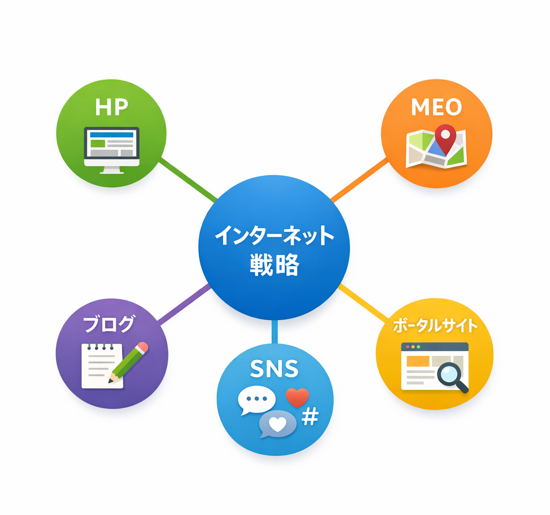
BLOG
2024年09月24日
行動心理学をやまひろが語る、ラベリング効果の力:言葉が未来を創る
「お互いに心底褒め伝え合うってこと!!」
このシンプルな言葉に、人間関係や自己成長を大きく変える可能性が秘められています。今回は、この言葉の背景にある「ラベリング理論」について、行動心理士やまひろの視点から深く掘り下げてみましょう。
ラベリング理論:言葉のレッテルが行動を導く
ラベリング理論は、社会心理学者ハワード・ベッカーが提唱した理論で、人々の行動が、周囲から貼られた「レッテル」(ラベル)によって大きく影響を受けることを示しています。
例えば、アニメ好きでフィギュアを集めている人がいるとします。ただそれだけの行動を、「オタク」と呼ぶかどうかは、社会や周囲の人々の判断次第です。そして、もし「オタク」というレッテルを貼られた場合、その人は次第に「オタク」らしい行動を強化していく可能性があります。
これは、血液型と性格の関連性についても同様です。「A型は真面目」「B型はマイペース」といったレッテルは、科学的根拠に乏しいにも関わらず、人々の自己認識や行動に影響を与えます。A型の人は「真面目」であろうとし、B型の人は「マイペース」を許容する傾向が強まるかもしれません。
ラベリング効果:ポジティブな言葉が成長を促す
ラベリング理論の重要なポイントは、レッテルがネガティブな影響だけでなく、ポジティブな影響ももたらすということです。
例えば、彼女に「かわいいね」と言い続けると、彼女はより魅力的になるかもしれません。部下に「仕事ができるね」と伝えれば、自信をつけ、実際にパフォーマンスが向上する可能性があります。
これは、「ピグマリオン効果」や「ホーソン効果」とも関連しています。ピグマリオン効果は、教師の期待によって生徒の成績が向上する現象を指し、ホーソン効果は、注目されることで従業員の生産性が上がる現象を指します。
つまり、人は、周囲からの期待や評価に応えようとするのです。
ラベリング効果を活かす:言葉で未来を創造する
ラベリング効果を理解すれば、私たちは言葉の力をより効果的に活用できます。
パートナーや家族への言葉遣い:
- 相手の長所や魅力を積極的に言葉で伝えましょう。「優しいね」「頼りになるね」といった言葉は、相手を勇気づけ、より良い関係を築く助けとなります。
- ネガティブなレッテルを貼ることは避けましょう。「ダメなやつ」「役立たず」といった言葉は、相手の自己肯定感を傷つけ、関係悪化を招く可能性があります。
職場でのコミュニケーション:
- 部下や後輩の成長を促す言葉を選びましょう。「期待しているよ」「君ならできる」といった言葉は、彼らのモチベーションを高め、能力を引き出す可能性があります。
- 批判や否定的な言葉は慎重に使いましょう。改善点を指摘する場合は、具体的な行動に焦点を当て、人格否定にならないよう配慮が必要です。
自分自身への言葉遣い:
- ポジティブな自己暗示を積極的に行いましょう。「できる」「やれる」といった言葉を繰り返し唱えることで、自信がつき、目標達成に近づくことができます。
- ネガティブな自己評価は避けましょう。「ダメだ」「無理だ」といった言葉は、自己肯定感を低下させ、行動を阻害する可能性があります。
まとめ:言葉の魔法で、より良い未来を
ラベリング効果は、言葉が持つ力を改めて認識させてくれます。私たちは、言葉を通じて、自分自身や周囲の人々の行動、そして未来を創造することができます。
お互いを認め合い、励まし合う言葉をかけることで、人間関係はより豊かになり、一人ひとりの成長が促進されます。
「お互いに心底褒め伝え合うってこと!!」
この言葉は、まさにラベリング効果を活かした、素晴らしい生き方と言えるでしょう。
行動心理士やまひろのメッセージは、私たち一人ひとりが、言葉の魔法使いになる可能性を示唆しています。ポジティブな言葉で、自分自身と周囲の人々を輝かせ、より良い未来を築いていきましょう。
The Power of the Labeling Effect: How Words Shape Our Future, as Explained by Behavioral Psychologist Yamahiro
"Expressing sincere compliments to each other is key!!"
This simple statement holds the potential to significantly transform our relationships and personal growth. Today, let's delve deeper into the "labeling theory" behind this statement, from the perspective of behavioral psychologist Yamahiro.
Labeling Theory: The Labels We Assign Guide Our Actions
Labeling theory, proposed by sociologist Howard Becker, suggests that people's behavior is significantly influenced by the "labels" assigned to them by others.
For instance, consider someone who enjoys anime and collects figurines. Whether or not this person is labeled an "otaku" depends on the judgment of society and those around them. If labeled as such, this person might gradually reinforce behaviors associated with the "otaku" stereotype.
This also applies to the association between blood types and personality. Despite lacking scientific basis, labels like "Type A is serious" or "Type B is laid-back" can influence people's self-perception and behavior. Type A individuals might strive to be "serious," while Type B individuals might embrace their "laid-back" nature.
The Labeling Effect: Positive Words Foster Growth
A crucial aspect of labeling theory is that labels can have both negative and positive impacts.
For example, consistently telling your girlfriend she's "cute" might make her feel more attractive. Telling a subordinate they are "capable" could boost their confidence and lead to improved performance.
This relates to the "Pygmalion effect" and the "Hawthorne effect." The Pygmalion effect refers to the phenomenon where a teacher's expectations can improve student performance, while the Hawthorne effect describes how increased attention can boost worker productivity.
In essence, people tend to live up to the expectations and evaluations of others.
Harnessing the Labeling Effect: Creating the Future with Words
Understanding the labeling effect empowers us to use the power of words more effectively.
Communication with partners and family:
- Actively express your appreciation for their strengths and qualities. Words like "kind" or "dependable" can encourage and foster better relationships.
- Avoid assigning negative labels. Words like "useless" or "good-for-nothing" can damage self-esteem and lead to relationship deterioration.
Workplace communication:
- Choose words that encourage the growth of subordinates and colleagues. Phrases like "I have high hopes for you" or "You can do it" can motivate and unlock their potential.
- Use criticism and negative words cautiously. When pointing out areas for improvement, focus on specific actions and avoid personal attacks.
Self-talk:
- Practice positive affirmations. Repeating phrases like "I can do it" or "I'm capable" can build confidence and bring you closer to achieving your goals.
- Avoid negative self-evaluation. Words like "I'm useless" or "It's impossible" can lower self-esteem and hinder progress.
Conclusion: Shaping a Better Future with the Magic of Words
The labeling effect reminds us of the power words hold. Through language, we can shape our own actions, the behavior of those around us, and ultimately, our future.
By acknowledging and encouraging each other, our relationships become richer, and individual growth is fostered.
"Expressing sincere compliments to each other is key!!"
This statement perfectly embodies the positive application of the labeling effect.
Behavioral psychologist Yamahiro's message suggests that each of us has the potential to become a magician with words. Let's use positive language to brighten ourselves and those around us, creating a better future together.





















